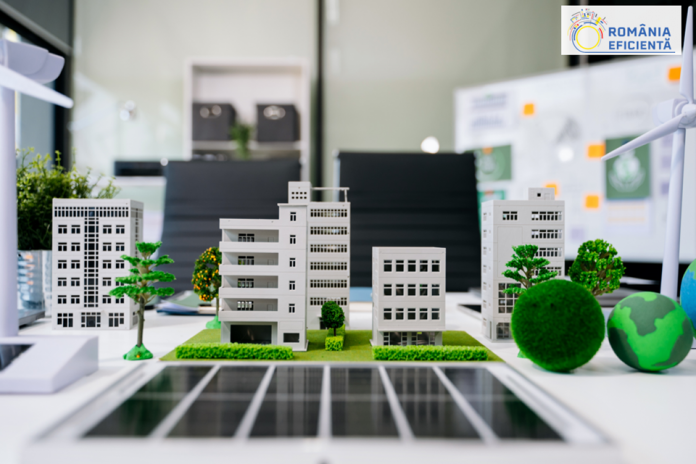Increasing the energy performance of buildings, responsible for 40 percent of energy consumption and 36 percent of the amount of greenhouse gases emitted into the atmosphere, is essential to achieving the highly ambitious climate neutrality targets of the European Union. Given that the renovation rate remains very low, the revision of the Energy Performance of Buildings Directive (EPBD) will introduce new measures to accelerate the green transition until 2030, for the complete decarbonization of the building sector until 2050. Their implications for Romania and regional level will be debated within the fifth edition of the Romania Eficienta Forum “EPBD Recast. Policy, challenges, and implementation”.
The new regulations included in the proposals for the revision of the Energy Performance of Buildings Directive (EPBD) will entail substantial changes for the buildings sector, one of the largest energy consumers and polluters at European level. Their adoption has the role of ensuring a clearer route of the just and equitable energy transition towards climate neutrality, which will bring considerable social and economic benefits and strengthen energy security at the European level.
The revision of the EPBD supports the achievement of the main objective of achieving the ZEB standard for the entire European Union building stock, by the year 2050. Thus, by the year 2028, all new public buildings will comply with the ZEB (zero energy consumption) standard, followed by all the other types of new buildings, until 2030; the deadline for the in-depth renovation to the ZEB standard of the existing building stock is 2050.
To this end, EU Member States’ long-term national renovation strategies will be replaced by National Building Renovation Plans, with pre-set targets for the years 2030, 2040 and 2050, which will also include annual renovation rates.
The minimum energy performance standards (MEPS) for non-residential buildings require the in-depth renovation of at least 16 percent of buildings with the lowest energy performance by 2030, and at least 26 percent by 2033.
In setting the national target for renovating residential buildings, Member States will aim to reduce average energy consumption by 16 percent in 2030 and up to 20-22 percent in 2035. 55 percent of the reduction in consumption will have to be achieved by renovating the building stock residential with the worst energy performance.
EU member states will benefit from flexibility in the development of the system of energy performance certificates at national level, ensuring the exclusive use of the letters from A to G to designate the energy classes in which the buildings will be classified. As regards renovation passports, introduced as a voluntary tool to facilitate in-depth renovations, they will be the subject of a separate annex to the EPBD, which will detail the requirements to be met.
The reduction of energy consumption and the decarbonisation of buildings will also be supported by the introduction of policies and measures to phase out fossil fuels used for heating and cooling, with a deadline of 2040.
Also, the implementation of solar technology, if technically and economically possible and functionally feasible, will be subject to differentiated requirements and deadlines for new buildings, public buildings, residential and non-residential buildings. The installation of solar technologies for existing public buildings will be carried out progressively, from December 2027, starting with the buildings with the largest floor area, the process to end with the equipment of the smallest buildings, by December 2030. Also from December 2027, all non-residential buildings existing, undergoing a major renovation process, must incorporate solar technology.
Last but not least, the buildings will contribute to the promotion of ecological mobility, by ensuring the necessary electrical infrastructure, the provisions being differentiated for new and existing non-residential buildings, respectively for new residential buildings.
The experts present at the fifth edition of the Efficient Romania Forum will discuss these topics, exploring the opportunities and challenges of increasing the energy efficiency of buildings and the solutions that can contribute to achieving the climate neutrality objectives assumed by Romania, as a member country of European Union.
The conference “EPBD Recast. Policy, challenges, and implementation” will take place on April 16, 2024 and will be broadcast live on the website of the Romania Eficienta program.




